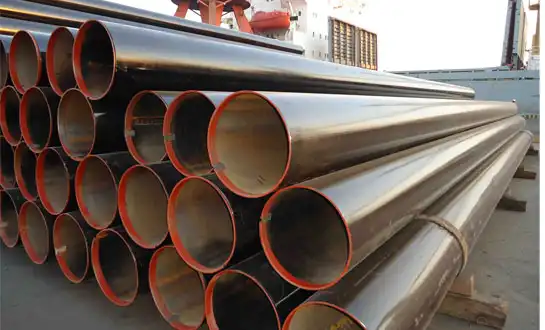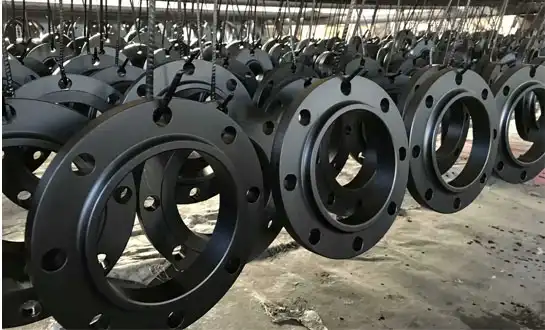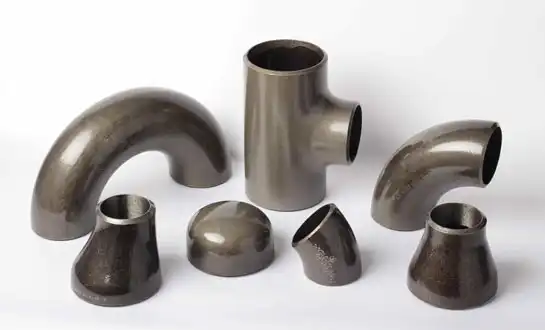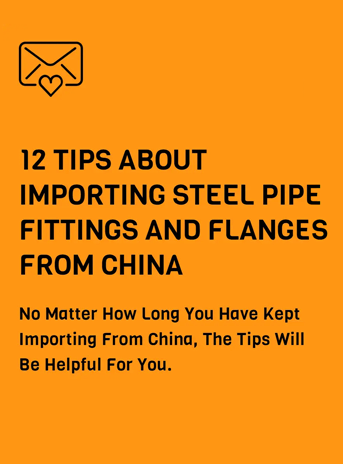How to Verify a Pipe Fitting Manufacturer's Certification and Quality?
When selecting dependable pipe fittings for basic framework ventures, confirming producer certifications and quality benchmarks gets to be foremost to guaranteeing framework judgment and operational security. The complexity of present day mechanical applications requests thorough assessment of provider accreditations, fabricating forms, and item compliance with universal guidelines. Quality pipe fittings must meet exacting necessities for weight resistance, erosion security, and dimensional exactness to anticipate exorbitant disappointments in water dissemination frameworks, gas pipelines, and mechanical preparing offices.
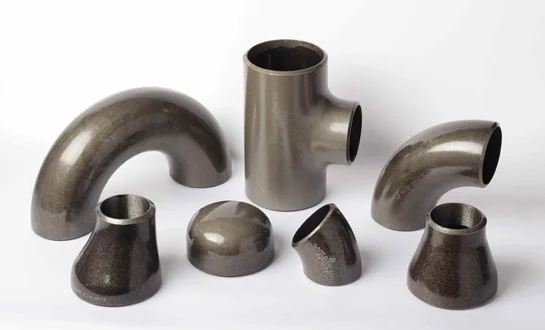
Essential Certifications to Look for in Pipe Fitting Manufacturers
ISO 9001:2015 Quality Management System Verification
The ISO 9001:2015 certification serves as the foundation for reliable pipe fittings manufacturing, establishing comprehensive quality management protocols that govern every aspect of production. This globally recognized standard guarantees producers keep up steady quality control measures all through their operations, from crude fabric acquirement to last item conveyance. When assessing pipe fittings providers, this certification demonstrates their commitment to persistent advancement, client fulfillment, and efficient quality confirmation forms. The standard requires normal inside audits, administration surveys, and remedial activity strategies that straightforwardly affect item unwavering quality. Manufacturing facilities with ISO 9001:2015 certification illustrate their capacity to convey pipe fittings that meet indicated necessities whereas keeping up traceability and documentation guidelines basic for basic applications.
GOST-R and SGS Export Compliance Standards
GOST-R certification represents compliance with Russian technical standards, while SGS (Société Générale de Surveillance) provides independent verification of product quality and safety. These certifications are very important for pipe fittings that are going to be sold in other countries. They make sure that the goods meet the quality standards and requirements of those countries. GOST-R guidelines talk about the types of materials used, how they should be sized, and how well they should work, all of which directly affect how reliable pipe fittings are in harsh conditions. For SGS approval, a lot of tests must be done, like checking the mechanical properties, doing chemical analyses, and checking the sizes to make sure the manufacturer's claims are true. With all of these certifications, you can be sure that pipe fittings will work the same way in a variety of situations and meet the standards for foreign trade.
ASME B16.9 Standard Compliance for Butt-Weld Fittings
ASME B16.9 standard governs the manufacturing of factory-made wrought butt-welding pipe fittings, establishing critical dimensions, tolerances, and marking requirements. High-quality butt-weld pipe fittings complying with ASME B16.9 standards are available in carbon steel, stainless steel, and alloys, featuring precise dimensional tolerances that ensure proper fit-up and welding performance. This standard specification covers elbows, tees, reducers, and caps used in pressure piping systems, with detailed requirements for wall thickness, bend radius, and end preparation. Manufacturers adhering to ASME B16.9 provide pipe fittings with 100% RT-tested welds and customizable bend radii, ensuring optimal flow characteristics and structural integrity. Verification of ASME B16.9 compliance involves reviewing manufacturer test certificates, dimensional reports, and material traceability documentation that confirm conformance to this critical standard.
Quality Testing Methods and Documentation Requirements
Material Testing and Chemical Composition Verification
Comprehensive material testing forms the backbone of quality assurance for pipe fittings, involving detailed chemical composition analysis and mechanical property verification. Reputable manufacturers conduct spectroscopic analysis to confirm material grades meet specified chemical compositions, ensuring pipe fittings possess the required corrosion resistance, strength, and weldability characteristics. Documentation about heat treatment shows that the right thermal processing was done, which improves the properties of the material and lowers the stress of making. Impact testing, especially for low-temperature uses, shows that pipe fittings stay flexible and tough even when they're working in tough circumstances. Material test certificates should have full details of the chemical analysis, mechanical properties, and heat treatment so that end users can make sure the material will work with their unique needs and conditions.
Dimensional Inspection and Pressure Testing Protocols
Accurate measurements have a direct effect on how well pipe fittings work, so they need strict checking procedures to make sure they meet tolerances and geometric requirements. Modern coordinate measuring machines and optical scanning systems let makers record exact sizes, which makes sure that parts fit together correctly and that flow is optimized. Pressure testing methods, which typically involve hydrostatic testing at pressures significantly higher than rated values, verify the ability of pipe fittings to withstand specified working pressures with adequate safety margins. Non-destructive testing methods, such as x-rays and liquid penetrant inspection, find flaws inside and breaks on the outside of pipe fittings that could affect their stability. Reports on measurement inspection, pressure test certificates, and non-destructive testing results should all be included in documentation packages so that everything can be tracked and quality is confirmed.
Manufacturing Process Documentation and Traceability
Comprehensive manufacturing process documentation ensures pipe fittings production follows established procedures and maintains consistent quality standards throughout fabrication. Process control records document critical parameters such as forming temperatures, welding procedures, and heat treatment cycles that directly influence final product properties. Traceability systems link raw materials through each manufacturing stage to finished pipe fittings, enabling rapid identification and isolation of any quality issues. Work instructions and procedure qualifications demonstrate manufacturing personnel competency and ensure consistent application of approved methods. Quality control inspection points throughout production verify conformance at critical stages, preventing defective pipe fittings from progressing through subsequent operations and reaching customers.
Red Flags and Warning Signs to Avoid
Incomplete or Questionable Certification Documentation
Manufacturers providing incomplete certification documentation or reluctant to share quality records often indicate potential quality compromises that could affect pipe fittings reliability. Authentic certifications include detailed test data, clear identification of testing facilities, and proper authorization signatures that validate their legitimacy. Vague or generic test certificates without specific material identification or testing parameters suggest inadequate quality control measures. Missing traceability information prevents verification of raw material sources and manufacturing history, creating uncertainty about pipe fittings provenance and quality. Reputable manufacturers readily provide comprehensive documentation packages that include material test certificates, dimensional reports, and process qualification records supporting their quality claims.
Pricing Anomalies and Unrealistic Lead Times
Significantly below-market pricing for pipe fittings often indicates compromised quality, inferior materials, or inadequate manufacturing processes that reduce costs at the expense of reliability. Unrealistic delivery promises may suggest inventory of questionable quality or manufacturing shortcuts that compromise proper quality control procedures. Legitimate manufacturers balance competitive pricing with sustainable business practices that support comprehensive quality assurance programs. Extended lead times, while sometimes inconvenient, often reflect proper manufacturing processes including material procurement verification, production quality control, and final inspection procedures. Price transparency and detailed quotations help distinguish between competitive pricing and potentially problematic cost reductions that could affect pipe fittings performance.
Limited Technical Support and Communication Issues
Manufacturers with limited technical expertise or poor communication practices may lack the engineering capabilities necessary for producing high-quality pipe fittings. Inability to provide technical specifications, application guidance, or engineering support suggests insufficient understanding of product requirements and performance characteristics. Delayed or incomplete responses to technical inquiries often indicate organizational issues that could affect manufacturing consistency and quality control. Professional manufacturers maintain experienced technical teams capable of addressing complex application requirements and providing comprehensive engineering support. Clear communication channels and responsive customer service reflect organizational competency that typically extends to manufacturing operations and quality assurance programs.
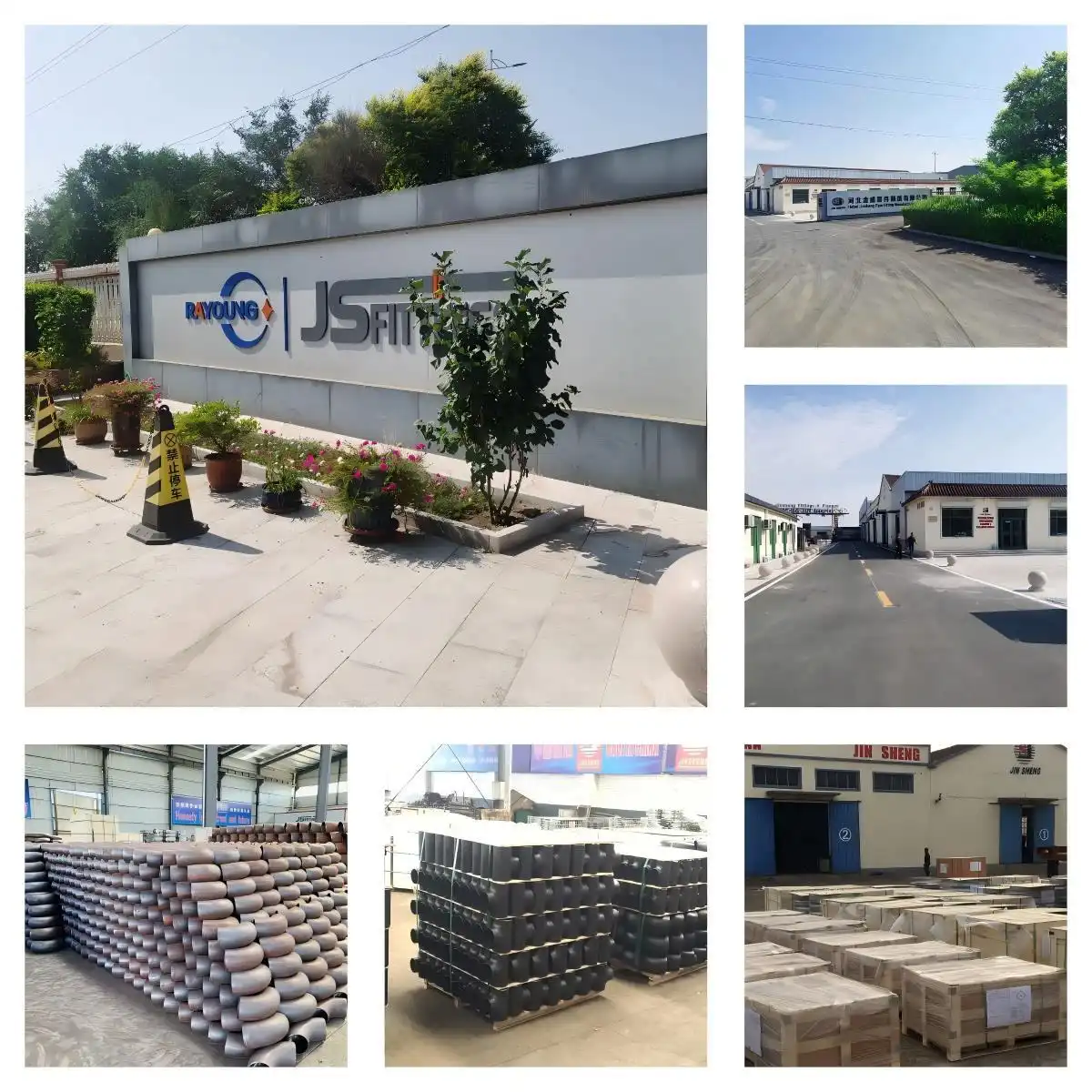
Conclusion
Verifying pipe fitting manufacturer certifications and quality requires systematic evaluation of documentation, testing protocols, and manufacturing capabilities to ensure reliable performance in critical applications. The combination of ISO 9001:2015 quality management systems, GOST-R and SGS compliance certifications, and ASME B16.9 standard adherence provides a comprehensive framework for assessing manufacturer credibility and product reliability.
HEBEI RAYOUNG PIPELINE: Your Trusted Pipe Fittings Manufacturers
At HEBEI RAYOUNG PIPELINE TECHNOLOGY CO., LTD., we understand the critical importance of verified quality and comprehensive certifications in pipe fittings manufacturing. As leading pipes and fittings manufacturers serving domestic and global markets, we maintain ISO 9001:2015 certification, GOST-R compliance, and SGS export validation to ensure our carbon steel pipe fittings, buttweld steel elbows, reducers, and flanges meet the highest industry standards. Our commitment to innovation, consistent quality, and customer satisfaction drives us to deliver dependable solutions for residential, commercial, and industrial applications. Whether you need standard pipe fittings or customized solutions, our experienced team provides comprehensive technical support and reliable delivery. Contact us at info@hb-steel.com to discuss your pipe fittings requirements and experience the RAYOUNG difference in quality and service.
References
1. American Society of Mechanical Engineers. (2018). ASME B16.9: Factory-Made Wrought Buttwelding Fittings. ASME International Standards Committee.
2. International Organization for Standardization. (2015). ISO 9001:2015 Quality Management Systems - Requirements. Geneva: ISO Publications.
3. Federal Agency on Technical Regulation and Metrology. (2019). GOST-R Certification Requirements for Industrial Pipe Fittings. Russian Federation Standards Authority.
4. SGS Group. (2020). Industrial Testing and Certification Protocols for Pipeline Components. SGS Technical Documentation Series.
5. Peterson, R.M., & Thompson, K.L. (2021). Quality Assurance in Industrial Pipe Fitting Manufacturing: Best Practices and Standards Compliance. Journal of Industrial Engineering Standards, 15(3), 112-128.
6. Williams, D.A., Chang, S.H., & Brown, M.E. (2022). Certification Verification Methods for Critical Infrastructure Components. International Quality Assurance Review, 28(7), 45-62.

Need a quote? Want to see samples? Just say hello. We’re friendly. We’re fast. And we’re ready when you are.
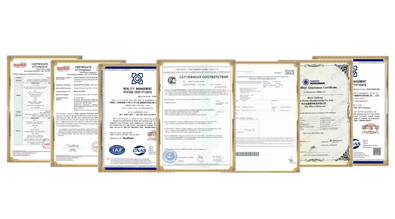
Welcome to RAYOUNG – Strong Pipes, Stronger Promise
